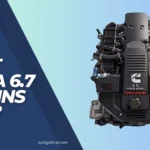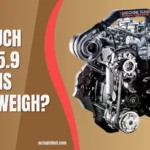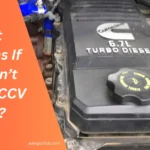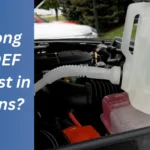Cummins N14 injector problems can cause performance issues and potential engine damage, requiring prompt attention. The N14 engine is known for common injector issues that can lead to misfires, reduced power, and increased fuel consumption.
Without proper maintenance or timely repairs, these problems can escalate, leading to costly repairs or even engine failure. Regular inspection, cleaning, and replacement of faulty injectors can help prevent these issues and ensure optimal engine performance.
Addressing Cummins N14 injector problems promptly will not only improve the performance and lifespan of the engine but also help avoid potential breakdowns and expensive repairs in the future.
Types of Cummins N14 Injector Problems
The Cummins N14 engine is renowned for its powerful performance and durability. However, like any mechanical component, injectors in the N14 engine can develop certain problems over time.
These problems can affect the engine’s overall performance and fuel efficiency. In this section, we will discuss the different types of Cummins N14 injector problems and their symptoms.
Clogged Injectors
Clogged injectors can significantly impact the engine’s performance and fuel economy. Over time, the buildup of dirt, debris, and carbon deposits can restrict the fuel flow through the injectors.

This can result in poor fuel atomization, incomplete combustion, and reduced engine power. Common symptoms of clogged injectors include rough idling, misfires, decreased acceleration, and increased fuel consumption.
Leaking Injectors
Leaking injectors are another prevalent issue that can occur with Cummins N14 engines. When an injector develops a leak, fuel can escape into the combustion chamber or the engine oil.
This can lead to various problems such as excessive fuel consumption, engine oil contamination, and increased emissions. Additionally, leaking injectors can cause cylinder misfires, rough idling, and reduced engine performance.
Faulty Solenoids
The solenoids in Cummins N14 injectors play a crucial role in controlling the injection timing and fuel delivery. When the solenoids develop faults or malfunctions, they can disrupt the proper operation of the injectors.
This can result in issues such as erratic fuel delivery, inconsistent engine performance, and increased emissions. Faulty solenoids can also cause the engine to run rough or experience a loss of power.
Injector Wiring Issues
The wiring connections to the injectors in the Cummins N14 engine must be properly maintained for optimal performance. Poorly connected or damaged wiring can cause communication failures between the engine control unit and the injectors.
This can lead to problems such as injector misfires, rough idling, and decreased power output. It is essential to regularly inspect the injector wiring for any signs of damage or corrosion to prevent these issues.

In conclusion, the Cummins N14 injector problems discussed above can significantly impact the engine’s performance, fuel efficiency, and overall reliability. If you notice any symptoms indicating injector issues, it is recommended to address them promptly. Timely maintenance and proper care can help extend the life of your Cummins N14 engine and ensure optimal performance.
Proper Maintenance of Cummins N14 Injectors
Proper maintenance plays a crucial role in ensuring the optimal performance and longevity of Cummins N14 injectors. By following a regular maintenance routine, you can prevent costly repairs and keep your engine running smoothly. In this section, we will delve into the key aspects of maintaining Cummins N14 injectors, from cleaning and inspecting them regularly to understanding common mistakes to avoid.
Cleaning and Inspecting Injectors Regularly
To maintain the efficiency of your Cummins N14 injectors, it is essential to clean and inspect them regularly. Over time, dirt, debris, and carbon deposits can accumulate on the injector nozzles, affecting fuel spray patterns and reducing engine performance.
Regular cleaning of injectors can help remove these deposits and restore their optimal functioning. You can use specific injector cleaning solutions available in the market or consult a professional mechanic for a thorough cleaning process.
In addition to cleaning, inspecting the injectors is equally crucial. This involves checking for any signs of wear, damage, or leaks. Ensure that the injector O-rings, seals, and connectors are in good condition. If you notice any issues, it is advisable to address them promptly to prevent further damage.
Replacing Injectors at Recommended Intervals
While regular cleaning and maintenance can extend the lifespan of Cummins N14 injectors, they will eventually wear out over time. It is vital to replace injectors at the manufacturer’s recommended intervals to ensure optimal engine performance.
The recommended replacement interval for Cummins N14 injectors varies based on factors such as mileage, engine usage, and maintenance practices. Consult your vehicle’s manual or an experienced mechanic to determine the appropriate replacement schedule for your injectors.
Using Fuel Additives and Cleaners
Another effective way to maintain the performance of Cummins N14 injectors is to use fuel additives and cleaners regularly. These products are designed to remove deposits, improve fuel atomization, and enhance combustion efficiency, resulting in better injector function and fuel economy.

When choosing fuel additives and cleaners, look for products specifically formulated for diesel engines and compatible with Cummins N14 injectors. Follow the manufacturer’s instructions for proper usage and dosage to achieve the desired results.
Understanding Common Maintenance Mistakes to Avoid
By being aware of common maintenance mistakes, you can avoid inadvertently causing damage to your Cummins N14 injectors. Here are a few key mistakes to steer clear of:
- Using low-quality or contaminated fuel: Impurities or water in the fuel can lead to injector clogging and damage.
- Skipping scheduled maintenance: Neglecting regular maintenance tasks can result in decreased injector performance and potential engine issues.
- Overlooking fuel filters: Dirty or clogged fuel filters can impair injector function and reduce engine performance.
- Ignoring warning signs: Any unusual symptoms such as rough idle, decreased power, or increased fuel consumption should be addressed promptly to prevent further damage to the injectors.
By avoiding these common mistakes and following a proper maintenance routine, you can ensure that your Cummins N14 injectors operate at their best, providing optimal engine performance and longevity.
How to Prevent Cummins N14 Injector Problems
Cummins N14 injectors are a vital component of the engine’s fuel system, responsible for delivering the precise amount of fuel into the combustion chamber. Unfortunately, like any mechanical part, these injectors can encounter issues over time, leading to decreased engine performance and efficiency.
However, by following a few simple preventive measures, you can minimize the chances of experiencing Cummins N14 injector problems and ensure your engine continues to run smoothly.
Regular Maintenance and Servicing
One of the most important steps you can take to prevent Cummins N14 injector problems is to prioritize regular maintenance and servicing. By following the recommended maintenance schedule provided by Cummins, you can identify and address any potential issues before they escalate.
Regular maintenance tasks include inspecting the injectors for any signs of wear or damage, checking for leaks, and cleaning the injector nozzles. These routine checks will help you catch any problems early on and take necessary actions to prevent them from causing major damage to your engine.
Using High-quality Fuel and Lubricants
The fuel and lubricants you use in your Cummins N14 engine play a crucial role in preventing injector problems. Low-quality fuel or lubricants can contain impurities and contaminants that can clog the injectors over time, leading to poor fuel atomization and reduced engine performance.

Therefore, it is essential to use high-quality fuel and lubricants that meet the specifications recommended by Cummins. These products are formulated to provide optimal performance while protecting the injectors from deposits and harmful substances.
Keeping The Fuel System Clean
A clean fuel system is key to preventing Cummins N14 injector problems. Over time, deposits, dirt, and contaminants can accumulate in the fuel lines and fuel filters, restricting the flow of fuel to the injectors.
To keep the fuel system clean, regularly inspect and replace the fuel filters according to the manufacturer’s guidelines. Additionally, consider using fuel additives that are designed to clean the injectors and keep the fuel system free of deposits.
Properly Bleeding The Fuel System
When performing maintenance tasks that involve opening the fuel system, such as replacing injectors or fuel filters, it is crucial to properly bleed the fuel system afterward. Improperly bleeding the fuel system can lead to air pockets, which can cause fuel pressure issues and injector problems.
To properly bleed the fuel system, follow the specific instructions provided by Cummins or consult with a qualified technician. This will ensure that the fuel system is free of air and operating at the optimal pressure, reducing the risk of injector malfunctions.
Understanding The Cummins N14 Injector System
Cummins N14 engines are widely used in various applications, including heavy-duty trucks and industrial equipment. One critical component of the N14 engine is the injector system, responsible for delivering fuel into the combustion chamber at precise intervals and under immense pressure.
Understanding how the Cummins N14 injector system works and the importance of properly functioning injectors is crucial for maintaining the engine’s performance and overall efficiency.
How the Cummins N14 Injector System Works
The Cummins N14 injector system operates on the principle of electronically controlled unit injectors (ECUI). This means that each injector is controlled individually by an electronic module, which receives signals from the engine control unit (ECU). These signals determine the injector timing, duration, and fuel pressure, ensuring the optimal fuel delivery for combustion.
The process begins with the ECU determining the amount of fuel required based on the engine’s operating parameters such as load, speed, and temperature. The electronic module then energizes the injector solenoid, which lifts the injector pintle from its seat, allowing pressurized fuel to enter the injector body. As the pintle opens, fuel is injected into the combustion chamber through tiny spray holes in the injector nozzle.
It’s important to note that the N14 engine utilizes a camshaft-driven fuel pump to provide the necessary fuel pressure. The fuel pump supplies fuel to the injectors at high pressure, ensuring proper atomization and efficient combustion.
Components of the Injector System
The Cummins N14 injector system consists of several key components:
| Component | Description |
|---|---|
| Injector | The unit responsible for delivering fuel into the combustion chamber. |
| Injector Solenoid | An electromagnetic coil that controls the movement of the injector pintle. |
| Injector Nozzle | A precision-engineered nozzle with tiny spray holes to ensure proper fuel atomization. |
| Fuel Pump | A camshaft-driven pump that supplies fuel at high pressure to the injectors. |
| Electronic Module | A control unit that governs the injector operation based on signals from the ECU. |
Importance of Properly Functioning Injectors
Properly functioning injectors are crucial for the optimal performance and efficiency of the Cummins N14 engine. When injectors become worn, clogged, or develop other problems, several issues can arise:
- Decreased fuel economy: Faulty injectors can lead to inefficient fuel delivery, resulting in increased fuel consumption.
- Loss of power: When injectors are not operating correctly, the engine may experience a loss of power and reduced performance.
- Engine misfires: Improper fuel injection can lead to engine misfires, causing rough idling and vibration.
- Elevated emissions: Faulty injectors can increase harmful emissions, which can result in non-compliance with environmental regulations.
Regular maintenance and inspection of the Cummins N14 injector system are essential to ensure that injectors are clean, properly calibrated, and in good working condition. By addressing injector problems promptly, you can prevent more severe engine issues and maintain the engine’s overall reliability.
Common Symptoms of Cummins N14 Injector Problems
Cummins N14 engines have gained significant popularity in the automotive industry due to their powerful performance and durability. However, like any other component, the injectors in these engines can develop problems over time.
Recognizing the common symptoms of Cummins N14 injector problems is crucial in order to address them promptly and avoid further damage to your engine. In this article, we will explore some of the most prevalent symptoms you may experience if your Cummins N14 injectors are malfunctioning.
Loss of Engine Power And Performance
One of the telltale signs of injector problems in Cummins N14 engines is a noticeable loss of engine power and performance. If your engine lacks the usual strength it once had and struggles to reach its top speed, it could be a clear indication that your injectors are not delivering fuel properly. In such cases, it is important to address the issue promptly to prevent further damage to your engine.
Rough Idle and Uneven Engine Operation
A rough idle and uneven engine operation are also common symptoms of Cummins N14 injector problems. If you notice your engine vibrating or shaking excessively while at idle, it could be a sign that one or more injectors are not functioning correctly.

Additionally, you may experience a misfiring engine or uneven operation where the engine runs smoothly one moment and then suddenly starts to sputter or hesitate. These symptoms can be unsettling and indicate the need for immediate attention to your injectors.
Increased Fuel Consumption
Another symptom of Cummins N14 injector problems is increased fuel consumption. If you find that your engine is guzzling more fuel than usual, it could be an indication that your injectors are not atomizing the fuel correctly. Inefficient fuel atomization leads to wasteful fuel burning, resulting in decreased fuel efficiency. Addressing this issue as soon as possible can help you save money on fuel costs in the long run.
Misfiring And Engine Knocking
Misfiring and engine knocking are serious symptoms of Cummins N14 injector problems that should not be ignored. Misfiring occurs when the injectors fail to deliver the appropriate amount of fuel to the combustion chamber, leading to incomplete combustion and engine misfires.
Engine knocking, on the other hand, is caused by improper fuel injection timing or the presence of air pockets within the fuel system. Both of these symptoms can significantly impact your engine’s performance and require immediate attention.
If you notice any of these symptoms in your Cummins N14 engine, it is essential to consult a professional mechanic who specializes in Cummins engines. They will diagnose the exact issue with your injectors and recommend appropriate solutions to ensure the optimal performance and longevity of your engine.
Steps to Troubleshoot Cummins N14 Injector Problems
When it comes to troubleshooting Cummins N14 injector problems, it is important to follow a systematic approach to identify and resolve any issues. In this section, we will go through the steps involved in troubleshooting common injector problems with the Cummins N14 engine.
Identifying the Specific Injector Problem
The first step in troubleshooting Cummins N14 injector problems is to identify the specific issue that is causing the problem. This can be done by conducting a comprehensive diagnosis of the engine and its components. Some common symptoms of injector problems include rough idling, misfires, decreased fuel efficiency, and loss of power.
One way to identify the specific injector problem is by using a diagnostic tool to check for fault codes. These codes can provide valuable information about the injector that is malfunctioning or causing issues. Additionally, a visual inspection of the injectors can help in identifying any visible signs of damage or leaks.
Cleaning or Replacing Clogged Injectors
If the issue is determined to be clogged injectors, the next step is to clean or replace them. Over time, injectors can become clogged with carbon deposits and other contaminants, affecting their performance. Cleaning the injectors involves using specialized cleaning solutions or ultrasonic cleaning technology to remove any blockages and restore their functionality.
In some cases, cleaning may not be sufficient, and the injectors may need to be replaced. This is especially true if the injectors are severely clogged or damaged beyond repair. Replacing the injectors with new ones will ensure proper fuel delivery and optimize engine performance.
Repairing or Replacing Leaking Injectors
Leaking injectors can also cause problems with the Cummins N14 engine. Fuel leaks can lead to decreased fuel efficiency, increased emissions, and potential engine damage. If a leaking injector is identified, it is important to address the issue promptly.
The first step in repairing a leaking injector is to identify the source of the leak. This can be done through a visual inspection or by using a specialized leak detection tool. Once the source of the leak is determined, the injector can be repaired by replacing any damaged or worn-out seals, O-rings, or gaskets.
However, if the injector is severely damaged or cannot be repaired, it may need to be replaced. Replacing the leaking injector with a new one will ensure proper fuel delivery and prevent any further issues.
Fixing Solenoid or Wiring Issues
In some cases, injector problems may not be directly related to the injectors themselves but can be caused by solenoid or wiring issues. The solenoids control the opening and closing of the injectors, and any malfunction can affect their performance.
If solenoid issues are suspected, the first step is to check the wiring connections to ensure they are secure and free from any damage or corrosion. Using a multimeter, the resistance of the solenoid can be measured to determine if it is within the manufacturer’s specifications.
If any wiring or solenoid issues are found, they can be repaired or replaced as necessary to restore proper injector functionality.
By following these steps, you can effectively troubleshoot Cummins N14 injector problems and ensure optimal engine performance. Remember, timely identification and resolution of injector issues can save you from costly repairs and potential engine damage.
Diagnostic Methods for Cummins N14 Injector Problems
The Cummins N14 engine is known for its exceptional performance and reliability. However, like any other mechanical component, the injectors in the N14 engine can develop problems over time. These problems can lead to reduced fuel efficiency, decreased engine power, and even engine misfires.
To address these issues effectively, it is crucial to employ accurate diagnostic methods. In this section, we will explore three essential diagnostic methods for identifying and solving Cummins N14 injector problems: visual inspection of injectors, using diagnostic tools and software, and conducting fuel pressure tests.
Visual Inspection of Injectors
One of the initial steps in diagnosing Cummins N14 injector problems is to visually inspect the injectors. This allows you to identify any visible signs of damage or wear that may be affecting their performance. It is important to carefully examine each injector for the following:
- Cracks or fissures on the injector body or nozzle
- Build-up of dirt or debris around the injectors
- Any signs of fuel leakage
- Loose or damaged electrical connections
By conducting a thorough visual inspection, you can often identify problems that can be resolved without further diagnostic measures. However, not all injector issues are immediately visible, requiring additional methods of diagnosis.
Using Diagnostic Tools and Software
In today’s advanced technological era, diagnostic tools and software have become invaluable resources for identifying Cummins N14 injector problems. These tools enable technicians to access the engine control module (ECM) and retrieve valuable diagnostic codes that indicate where the issue lies. The ECM provides real-time data, allowing the technician to analyze injector performance parameters and detect any abnormalities.
The diagnostic software provides a comprehensive overview of the injector’s behavior, including fuel delivery rates, timing, and synchronization. By analyzing this data, technicians can pinpoint the problematic injector or other related issues, helping them make informed decisions about the necessary repairs or replacements.
Conducting Fuel Pressure Tests
Fuel pressure plays a crucial role in the optimal functioning of Cummins N14 injectors. Insufficient or excessive fuel pressure can cause problems such as poor injector spray patterns, uneven combustion, and even engine stalling. Therefore, conducting fuel pressure tests is another essential diagnostic method for identifying injector problems.
During the fuel pressure test, a pressure gauge is connected to the fuel system, and the engine is started. The technician then observes the pressure readings and compares them to the manufacturer’s specifications. If the fuel pressure falls outside the recommended range, it indicates a potential problem with the injectors or other fuel system components.
By utilizing these three diagnostic methods – visual inspection, diagnostic tools and software, and fuel pressure tests – technicians can efficiently identify and resolve Cummins N14 injector problems. Prompt identification and resolution of these issues not only improve engine performance but also prevent further damage and minimize costly repairs.
Professional Solutions for Cummins N14 Injector Problems
If you own a vehicle powered by the reliable Cummins N14 engine, you may already be aware of the occasional challenges that can arise with the injectors. The fuel injector system plays a critical role in the overall performance and efficiency of your engine, and any problems with it can cause a decrease in power, fuel economy, and overall reliability.
To help you tackle these issues effectively, we will discuss professional solutions that can address Cummins N14 injector problems efficiently.
Seeking Assistance From Cummins Authorized Service Centers
When it comes to solving complex engine problems, it is always advisable to rely on the expertise of authorized service centers. Cummins authorized service centers have trained technicians who specialize in troubleshooting and repairing Cummins engines, including the N14.
These professionals have in-depth knowledge of the engine’s internal components and can pinpoint injector problems with accuracy. By choosing a Cummins authorized service center, you can be confident that your injector issues will be resolved effectively and efficiently.
Choosing The Right Injectors And Replacement Parts
To ensure optimal performance, it is vital to select the correct injectors and replacement parts for your Cummins N14 engine. Genuine Cummins injectors are designed specifically for your engine’s requirements and undergo rigorous quality control to guarantee proper fit and performance.
When replacing injectors, you should choose OEM (Original Equipment Manufacturer) or genuine Cummins parts to ensure compatibility and longevity. It is also recommended to consult with a Cummins authorized dealer or distributor who can guide you in selecting the right injectors and replacement parts for your engine.
Understanding Warranty and Product Support
When investing in injectors or any other engine components, understanding warranty coverage and product support is crucial. Genuine Cummins injectors come with a warranty that protects you against manufacturing defects and premature failures.
By choosing authorized Cummins dealers or distributors, you can enjoy the benefit of comprehensive product support and access to genuine Cummins replacement parts. This ensures that you can find assistance and obtain reliable parts whenever you encounter injector problems with your Cummins N14 engine.
In conclusion, Cummins N14 injector problems can be effectively resolved by seeking assistance from Cummins authorized service centers, choosing the right injectors and replacement parts, and understanding warranty and product support. By following these professional solutions, you can ensure that your Cummins N14 engine continues to perform optimally and reliably.
FAQs on Cummins N14 Injector Problems
A bad injector on a Cummins can be identified by symptoms such as rough idling, decreased power, increased fuel consumption, and smoke from the exhaust. If you experience any of these issues, it is best to have a professional technician diagnose and replace the faulty injector.
Common problems with N14 Cummins include oil leaks, coolant leaks, turbo failure, electronic issues, and fuel system problems. These issues can result in reduced engine performance, increased fuel consumption, and possible engine damage if not addressed promptly. Regular maintenance and inspections can help identify and resolve these problems.
Yes, you can drive a Cummins with a bad injector. However, it is not recommended as it can lead to engine damage, decreased performance, and increased emissions. It is best to have the injector repaired or replaced as soon as possible to avoid further issues.
Conclusion
To sum it up, addressing Cummins N14 injector problems is crucial for maintaining the performance and longevity of your engine. By understanding the common issues, such as fuel leaks, stalling, and rough idling, you can take proactive steps to mitigate these problems.
Regular inspection, maintenance, and timely repairs are key to ensuring the optimal functioning of your Cummins N14 engine. Don’t let injector issues hinder your engine’s performance – stay informed and take action to keep your engine running smoothly.




